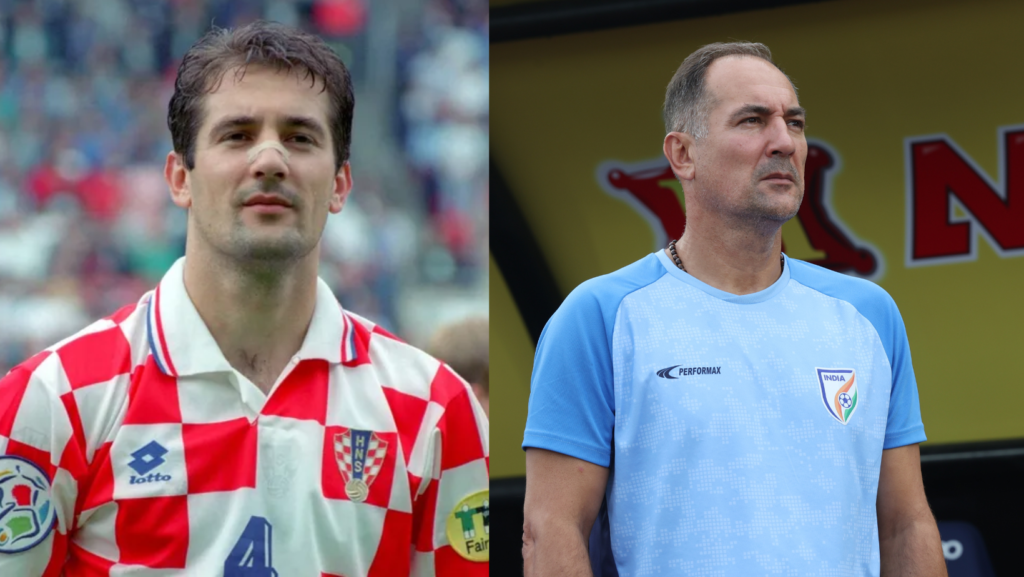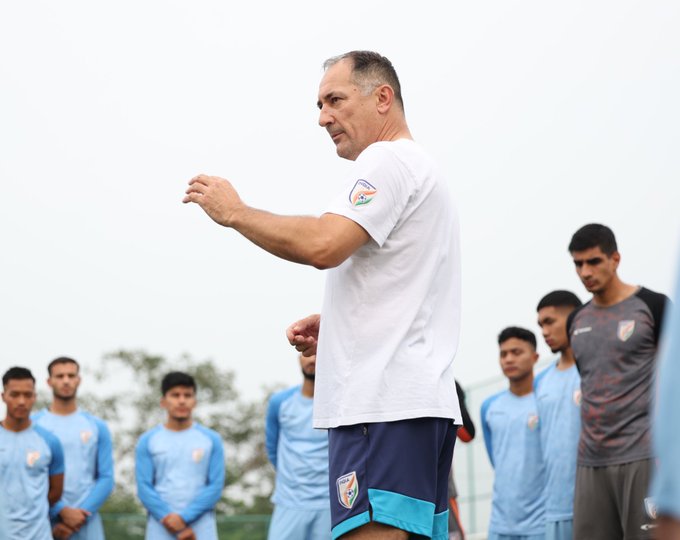
RevSportz Comment
“Football victories shape a nation’s identity as much as wars do.” These are not the words of a football player or coach. Instead, they were uttered by Franjo Tudjman, the first President of Croatia, who counted himself as one of the national team’s biggest fans. Someone who enjoyed high approval ratings for most of his eight years in power, Tudjman instinctively understood the power of sport to bring people together, especially in a young nation still establishing its identity.
Igor Stimac was part of the Croatian side that Tudjman spoke of, so fondly. Their progress to the quarterfinals of Euro 1996 energised a country still recovering from the ravages of war in the Balkans. Stimac needs no reminding that it was his being sent off in the 56th minute against Germany which was the turning point.
Two years later, Croatia got their revenge, thrashing Germany 3-0 in the quarterfinals at France 1998. Only an unexpected double from Lilian Thuram, France’s right-back, would stop them in their tracks in the last four. But by then, with Tudjman himself cheering the team, there was delirious bedlam on the streets of Zagreb, Split and Dubrovnik.
The spontaneous explosions of joy in those cities was a far cry from the dark days of conflict when the heart of what could have been one of football’s greatest teams had been ripped out. The Yugoslavia team that won the FIFA Youth World Championship in 1987 was one of the finest junior sides ever. Robert Prosinecki and Zvonimir Boban did the midfield prompting, while Davor Suker and Predrag Mijatovic were tasked with putting the chances away.
By the time that quartet, along with Stimac, had graduated to the senior ranks, war and the break-up of a nation were on the horizon. When Dinamo Zagreb played Red Star Belgrade, the champions elect, at the Maksimir Stadium on May 13, 1990, rioting broke out in the stands. “Yugoslavia stopped existing when the Dinamo-Red Star riot took place,” said Drazen Lalic, a political scientist, to The New York Times in 2018. “If we can’t play football anymore and be in the same terraces anymore, it was impossible to live together anymore.”
🚨 EXCLUSIVE
Having worn the Blue Tigers’ shirt with pride for nearly two decades, Sunil Chhetri admitted there were moments of self-doubt after announcing his retirement. Now, he’s at peace and ready for India’s biggest game in years.
✍️@BoriaMajumdarhttps://t.co/wiMV0LKoyd
— RevSportz (@RevSportz) June 6, 2024
Stimac, Boban and Prosinecki would all become stalwarts of the first great Croatian team. Mijatovic would score the winning goal for Real Madrid in a Champions League final (1998) and play for Yugoslavia and Serbia, like Dragan Stojkovic and Dejan Savicevic – already established internationals by the time that youth team played its way to glory in Chile.
More than most, Stimac knows the value of a football shirt, and the national crest on its heart. In the decades since Croatian independence, the football team’s ‘chessboard’ jersey – inspired in part by the iconic flagstones in Dubrovnik – has become instantly recognisable across the world, and the fans’ energy has played a huge part in their success.
But Croatia is a country of just four million. Manipur and Mizoram, two tiny northeastern states that will contribute a big chunk of players in the India squad tonight, together, have a similar population. Whatever be the criticism of his training methods, playing style or reliance on a core group of ageing players, what cannot be denied is the way Stimac has got individuals playing for the badge.
A Julian Nagelsmann or Gareth Southgate don’t need to appeal to fans’ patriotism ahead of big games and tournaments. Germany and England have such robust football cultures that coaches usually shy away from such remarks for fear of unnecessarily increasingly the pressure on the players.
The Indian team that Stimac took charge of wasn’t remotely comparable. Football fans in India would have been able to tell you each of Manchester United’s or Chelsea’s results that season. But ask them when India’s next fixture was, and many would have either been ignorant or disinterested.
That apathy has been Indian football’s bane in the decades since the decline began after the death of Syed Abdul Rahim, the legendary coach whose life was recently immortalised on celluloid in Maidaan. Overtly nationalistic sentiments are problematic for many, but Stimac has never had any qualms about taking a leaf from the Tudjman manual.
“We have the chance to make 1.5 billion people happy,” he said on the eve of the World Cup qualifier against Kuwait in Kolkata on June 6. “We need to do everything to make it happen. That is why it is the biggest game of my career.”
His Croatian band of brothers were bonded together by the tragedy of war and the personal losses that each suffered. In his current avatar, it’s half a century of on-field losses and trauma that he needs to overcome. Appealing to thousands to believe in the power of the Blue Tigers’ shirt, and the tricolour on the crest, is a good place to start, regardless of what the sceptics may say.
For the Latest Sports News: Click Here

Also Read: Sunil Chhetri is not just a footballer, he is a movement



